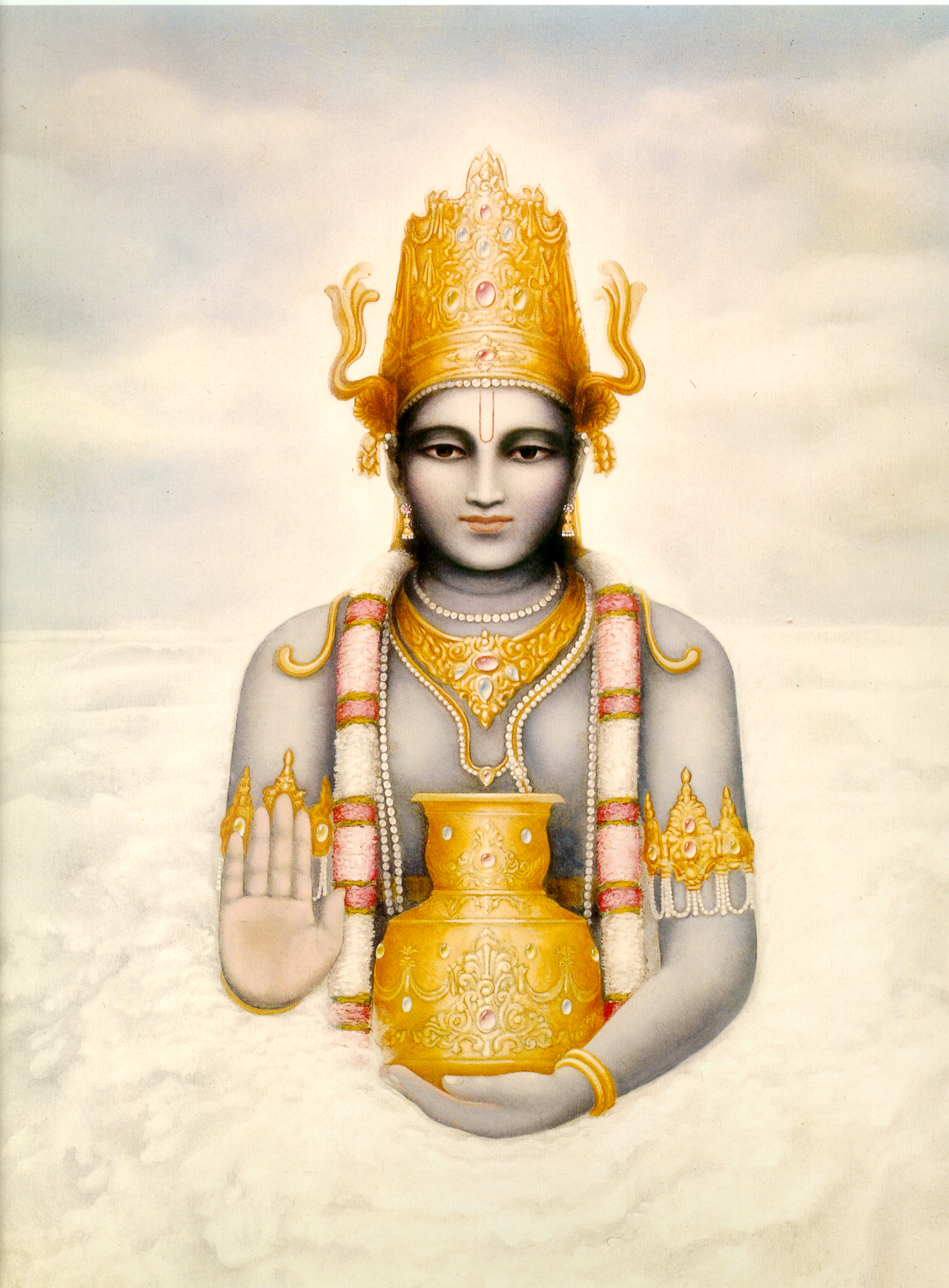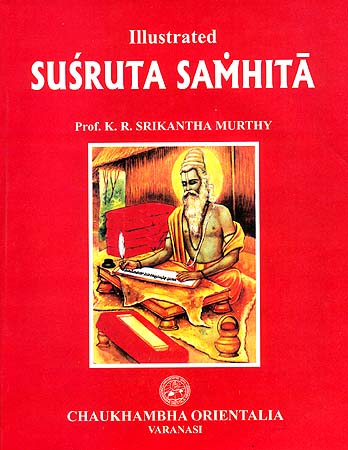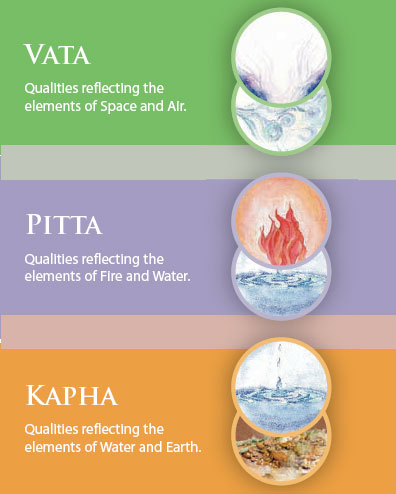Ayurveda: The Science of Natural Life
Traditional belief places Ayurveda's origin in an era beyond time. First transmitted through oral traditions from divinity to humans, this divine medicine was not written in texts until recent human history.
Wisdom imparted in the seminal texts of Atharva Veda, Shushruta samhita, Charaka samhita, and Ashtanga Hrydaya was written between 2000BC - 900AD. These texts continue to serve as the guiding principles for the practice of Ayurveda.
Scientists and physician who wrote these texts, recognized everything to have origninated from a single truth. Nature is an expression of this essential truth. Human beings, as part and products of Nature, are subject to Natural laws.
Therefore, Ayurved practitioners are keen observers of nature; capable of understanding nature of the individual and their unique constitution and their unique imbalances.
Basic Principles
The Human Body is composed of 5 basic elements:
- Space (Aakash)
- Air (Vayu)
- Fire (Agni)
- Water (Jala)
- Earth (Prithvi)
Each of the Five element has intrinsic qualities that are guided by natural laws in their function:
- Space is open, empty, clear, expansive, etc. Space element represents spaces in the body as found in the stomach, intestines, Ears, as well as space in the meditative, peaceful mind.
- Air is mobile, light, dry, rough, etc. Air element represents movement of blood and lymph is vessels, physical movement, bowel movements, as well as inspirations and emotions that move the mind.
- Fire is transformative, illuminating, destructive, and purifying. This element represents digestive transformation of nutrition and thoughts into our physical form. It also is the source of intelligence and charisma of the individual.
- Water is adhesive, building, cleansing, etc. Water element is carrier of nutrition in our blood stream, it is carrier of waste in sweat and urine. Water also represents emotional attachment and loving nature of the individual.
- Earth gives stability, density, heaviness, and structure. It is the structural component of organs and skeleton. The Earth element provides mental groundedness and emotion stability when in balance.
Source: http://www.eattasteheal.com/ayurveda101/eth_bodytypes.htm
The Human body is a dynamic physiological and spiritual system, that is controlled by organic forms of the elements. In the body, 5 basic elements make up the physiological energies:
- Vata: Space + Air
- Pitta: Fire + Water
- Kapha: Water + Earth
The functions and qualities of these energies are derived from the elements they are composed of...
These energies conduct physical and mental functions of the body. In turn, the tendencies and qualities of the individual are derived from a unique composition of these energies. This unique composition of physical and mental tendencies is called the individual constitution (prakriti or nature).
This is the basis for individuality and individualized treatment in Ayurved. When the individual's constitution is in balance, these energies result in optimal physical, mental, and spiritual health.
Imbalance in these and accumulation of toxins gives rise to some common diseases very easily, like :
Stress, anxiety, depression, fatigue, Allergies, cough and cold, digestive disorders, skin problems, head-aches, constipation, body- pain, sinus, weight gain, arthritis etc…
Simple changes in daily routine, diet, life-style, as per your body constitution and as per season changes will help you to avoid the above complications to grow in your body and mind and become incurable.
Know yourself now.........
Feel the Truth and be in it






